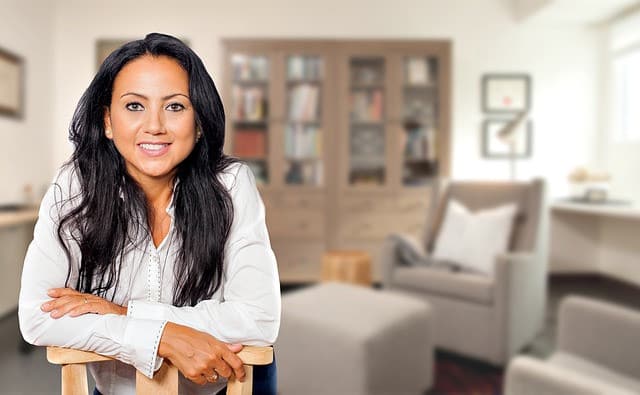In the grand tapestry of life, change is the only constant. As we embark on this journey, we find ourselves confronting a myriad of transitions – be it a new job, relocating to a different city, becoming parents, or adjusting to an empty nest. While these changes offer us opportunities for growth, they can also strain the delicate fabric of a romantic relationship. This is where the art of effective couples communication comes into play, and seeking the guidance of a skilled couples therapist can be the compass that guides partners through the storm of transformation.
The Dance of Communication: The Heartbeat of a Relationship
Communication, they say, is the lifeline of any relationship. When life throws its curveballs, the efficacy of communication between partners is put to the test. Life changes can disrupt routines, evoke uncertainties, and even trigger emotions that are difficult to articulate. In these moments, the way partners communicate becomes paramount.
Healthy couples communication is not just about talking; it’s about listening, understanding, and empathizing. It’s about finding common ground even in the midst of differing opinions and emotions. A couples therapist acts as a skilled conductor, helping partners navigate the complexities of conversation. They provide a safe space for expressing vulnerabilities, fears, and desires, fostering an environment where both partners feel heard and validated.
The Importance of Communication in Couples
Communication skills are the lifeblood of a healthy relationship. They encompass the ability to express one’s thoughts, feelings, and needs while actively listening to and respecting the same from a partner. When couples communicate effectively, they forge a stronger emotional connection and navigate conflicts with grace. Here are some key aspects that highlight the importance of healthy communication in romantic relationships:
Active Listening
One of the cornerstones of good communication skills is active listening. This involves giving your partner your full attention, maintaining eye contact, and genuinely trying to understand their perspective. Active listening can help prevent misunderstandings and show your partner that their feelings and thoughts matter.
Expressing Own Feelings
In a healthy relationship, individuals feel safe expressing their own feelings, whether they are positive or negative. This transparency allows partners to understand each other on a deeper level and fosters emotional intimacy.
Avoiding Hurt Feelings
Poor communication often leads to misunderstandings, which can hurt feelings and breed resentment. When couples communicate openly and honestly, they are better equipped to address issues before they escalate.
Staying on the Same Page
When couples are in sync with their communication, they are more likely to make joint decisions, set goals together, and create a shared vision for their future.
Emotional Connection
Effective communication is the bridge that allows couples to form and maintain a profound emotional connection. When partners openly share their thoughts and feelings, it fosters intimacy and a sense of being truly known and understood by one another. This emotional bond serves as a strong foundation for the relationship, enabling it to weather the storms of life together.
Conflict Resolution
Disagreements are a natural part of any relationship, but how couples communicate during conflicts can determine whether they strengthen or weaken the partnership. Healthy communication skills empower couples to resolve conflicts constructively, finding mutually beneficial solutions rather than allowing disagreements to fester and erode the relationship.
Trust and Security
When communication is transparent and honest, it cultivates trust between partners. Knowing that your partner will share their thoughts and feelings with you, even when those thoughts are uncomfortable, creates a sense of emotional safety. Trust is a cornerstone of any healthy relationship, and it grows when communication is open and consistent.
Shared Goals and Values
Effective communication allows couples to align their goals and values. By discussing their aspirations, plans, and priorities, couples can work together to create a shared vision for their future. When partners are on the same page, they are more likely to support each other’s dreams and navigate life’s challenges as a united front.
Validation and Affirmation
Communication enables partners to validate each other’s experiences and offer affirmation and support. Simply acknowledging your partner’s feelings and experiences can go a long way in making them feel valued and loved. It’s through communication that couples express appreciation, compliments, and affection, reinforcing their love for one another.
Preventing Misunderstandings
Misunderstandings are a common source of conflict in relationships. Clear and effective communication helps prevent these misunderstandings by ensuring that both partners have a shared understanding of each other’s perspectives and intentions.
Adaptation and Growth
Life is dynamic, and relationships must adapt and grow along with it. Through ongoing communication, couples can stay attuned to each other’s changing needs, desires, and aspirations. This adaptability is essential for maintaining thriving and healthy relationships over time.
Empathy and Compassion
Good communication skills enable partners to practice empathy and compassion. It allows them to step into each other’s shoes, understand their partner’s emotional state, and respond with kindness and support. This empathetic communication builds a strong sense of partnership and mutual care.
In essence, communication in couples is not merely a means of conveying information; it’s the heartbeat of a healthy relationship. It infuses every aspect of the partnership with vitality, ensuring that both individuals feel heard, valued, and loved. Couples who prioritize and nurture their communication skills are better equipped to navigate life’s challenges, celebrate their successes, and create a lasting, deeply fulfilling connection.
Communication Exercises for Couples and Helpful Tips

Effective communication lies at the heart of every thriving relationship. It’s the foundation upon which trust, intimacy, and understanding are built. For couples looking to enhance their connection and navigate the challenges of life together, engaging in communication exercises can be a transformative journey. In this article, we explore a range of unique communication exercises and offer helpful tips that can strengthen the bond between partners, fostering deeper emotional intimacy and harmony.
Communication Exercises for Couples
- Daily Check-Ins: Set aside a few minutes each day to connect with your partner. Share your highs and lows, your thoughts and feelings. This simple practice promotes open and regular communication, ensuring you stay attuned to each other’s daily experiences.
- Active Listening Practice: Sit facing each other and take turns sharing something that’s important to you. The listener’s role is to actively listen without interruption, paraphrasing what they’ve heard to ensure understanding. This exercise cultivates the skill of listening with empathy and focus.
- The “I” Statement Game: When discussing concerns or conflicts, use “I” statements to express your feelings and needs. For example, say, “I feel hurt when…” instead of “You always make me feel hurt.” This shift in language encourages personal responsibility and reduces defensiveness.
- Non-Verbal Communication Exploration: Spend a few moments silently communicating with your partner through gestures, facial expressions, and body language. Afterward, discuss what you each observed and how non-verbal cues can impact your understanding of each other.
- Role Reversal: Switch roles in a conversation, with one partner expressing their viewpoint while the other mimics their communication style, tone, and body language. This exercise helps partners gain insights into how their communication affects each other.
- Journaling Together: Choose a journal and take turns writing messages to each other. It’s an excellent way to express feelings, gratitude, or appreciation in a more reflective and deliberate manner.
- The “Five Whys” Technique: When discussing a problem or issue, take turns asking each other “Why?” five times to delve deeper into the root causes. This exercise encourages exploration and helps uncover underlying concerns.
Helpful Tips for Effective Communication
- Create a Safe Space: Ensure that your communication environment is judgment-free and safe. Both partners should feel comfortable sharing their thoughts and emotions without fear of criticism or rejection.
- Practice Patience: Effective communication takes time. Be patient with yourself and your partner as you work on improving your skills. Rome wasn’t built in a day, and neither are strong communication habits.
- Use Positive Language: Focus on expressing your needs and feelings positively rather than blaming or criticizing. Frame your positive statements in a way that encourages cooperation and understanding.
- Stay Present: When engaged in a conversation, put away distractions like phones or TVs. Make eye contact and actively listen to your partner. Being fully present demonstrates that you value their thoughts and feelings.
- Seek Clarification: If you don’t fully understand something your partner has said, ask for clarification rather than making assumptions. This ensures that you’re on the same page and reduces misunderstandings.
- Practice Empathy: Try to see things from your partner’s perspective. Empathy fosters understanding and compassion, which are essential components of effective communication.
- Take Breaks When Needed: If a conversation becomes heated or unproductive, it’s okay to take a break and return to it later when both partners are calmer and more composed.
The Benefits of Consulting a Couples Therapist

Love is a beautiful journey, but it’s not always a smooth one. In the complex terrain of romantic relationships, couples often encounter obstacles that test their connection. While some challenges can be overcome through mutual effort, others may require the guidance of a trained professional.
Couples therapy, offered by experienced therapists, provides a safe and constructive environment for partners to work through issues, improve communication, and rekindle the flames of love. Let’s explore the unique benefits of consulting a couples therapist and how it can transform relationships.
Improved Communication Skills
Communication is the cornerstone of any healthy relationship. A couples therapist provides a safe and structured environment for partners to express themselves openly and honestly. Through various techniques and exercises, couples can enhance their communication skills, learn active listening, and gain a deeper understanding of each other’s perspectives. This newfound ability to communicate effectively can prevent misunderstandings, reduce conflicts, improve relationship satisfaction, and foster a stronger emotional connection.
Conflict Resolution
Couples often encounter conflicts, but what sets successful relationships apart is how these conflicts are managed. A skilled couples therapist assists partners in navigating disagreements constructively. They teach conflict resolution strategies that enable couples to address issues without damaging the relationship. Learning to compromise, validate each other’s feelings, and find common ground can transform seemingly intractable conflicts into opportunities for growth.
Emotional Intimacy
Couples therapy provides a space for partners to explore their emotions, vulnerabilities, and desires. As couples delve into their emotional landscapes, they often discover new depths of intimacy. Therapists guide couples in sharing their thoughts and feelings in a supportive environment, leading to increased emotional closeness and a stronger sense of connection.
Identifying Patterns and Triggers
Many relationship conflicts stem from recurring patterns and triggers, often rooted in past experiences. A couples therapist helps couples identify these patterns and triggers, shedding light on the underlying issues. Once recognized, couples can work together to break free from destructive cycles and replace them with healthier behaviors.
Rebuilding Trust
Trust is fragile and can be shattered by various events, such as infidelity or broken promises. Couples therapists assist partners in the delicate process of rebuilding trust. Through open and honest conversations, couples can address the breaches in trust, set boundaries, and develop strategies to prevent future betrayals.
Enhanced Empathy and Understanding
Couples therapy encourages partners to practice empathy and develop a deeper understanding of each other’s perspectives. As couples learn to see the world through their partner’s eyes, they become more compassionate and supportive. This empathy paves the way for increased cooperation and harmony in the relationship.
Personal Growth
Couples therapy is not only about improving the relationship but also about personal growth. Through self-reflection and exploration, individuals often gain a better understanding of themselves. This self-awareness can lead to personal growth, increased self-esteem, and a stronger sense of identity, all of which can positively impact the relationship.
Preventing Future Issues
Couples therapy equips partners with the tools and skills to handle future challenges that may arise. By learning effective communication, conflict resolution, and emotional management techniques, couples are better prepared to navigate life’s ups and downs together.
Consulting a couples therapist is a proactive and empowering choice for those committed to the well-being of their relationship. It is not an admission of failure but a courageous step toward a more harmonious and fulfilling partnership.
Couples who invest in therapy often find that it strengthens their bond, renews their love, and equips them with the skills needed to navigate the complex terrain of romantic relationships with grace and resilience.
Silver Lake Psychology: Guiding Partners Through Change
Silver Lake Psychology’s team of experienced couples therapists understands the intricacies of communication within relationships. They recognize that life changes can be daunting, but with the right tools, these changes can lead to a more profound understanding of each other.
Through tailored counseling sessions, we work collaboratively with partners, offering them the support and guidance they need during periods of transition. By fostering a compassionate and non-judgmental environment, they enable couples to communicate effectively and transform challenges into opportunities for growth.
Embrace Change, Strengthen Your Bond
Life changes are inevitable, but the impact they have on your relationship is not predetermined. With the guidance of skilled couples therapists, you and your partner can navigate these changes with grace, emerge stronger, and deepen your connection.
Ready to embark on this journey of growth together?
Book an appointment with us today and take the first step towards a more resilient and harmonious relationship. Embrace change, empower your communication, and watch your bond flourish amidst life’s twists and turns.


